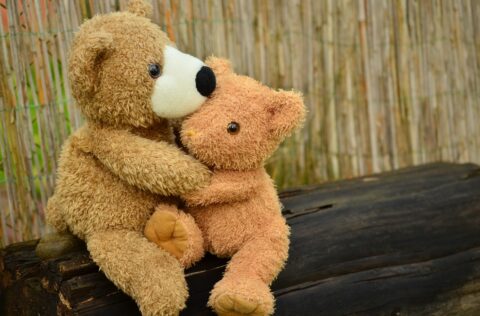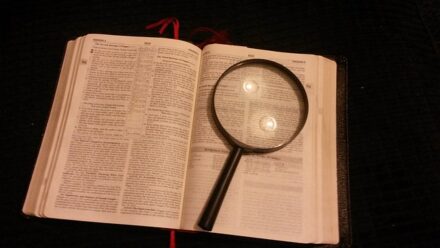I wrote this about two years ago. I don’t believe any man is a shepherd anymore, but this was the only way I could try to explain what was happening when I was in…
Once upon a time, there was a shepherd who had many sheep. The sheep were healthy sheep, though all had their little differences that made them rather sheepish. Most of the sheep were happy sheep, and they all enjoyed doing sheepy things, laying in the sun or eating the grass and watching the lambs play. The shepherd was happy too. He had a peaceful job, for the most part. He had time to think and enjoy the outdoors. He practiced hunting the bears and lions that occasionally came around looking for fat sheep or little stray lambs to steal, and ensured that none of the sheep wandered too far. It was nice being a shepherd. He protected them from predators, and they, by sharing their wool to make him coats, kept him warm on cold winter nights.
One morning a bear came. The shepherd got his sling and started to stand. The sheep were scared and huddled in close to him. They trusted him, and they would protect him. But then he couldn’t get to the bear, and it was getting close to a favorite lamb, and though he knew they were doing what they knew, the shepherd got angry. He began kicking and yelling at his sheep, trying to make them move. The sheep got scared and huddled even closer together, tripping the angry shepherd in his attempts to get at the bear. When he stood, he saw the bear lumbering away with his little lamb in it’s paws.
The shepherd was sad. His lamb had been lost, and his sheep were at fault. As they calmed down, he did not. He vowed this would never happen again. As the sheep came toward him through the day, he would push them away. He had his lambs to worry for. The sheep didn’t feel it much through their warm coats. But they felt the shepherd’s anger, and this made the sheep sad. Over the next days, the lambs stopped jumping as much, and the old rams stopped eating as well.
After a few days, the bear came back. The shepherd knew this bear, and immediately jumped up, kicking and yelling at the sheep to move. Most of the sheep, seeing his actions, and smelling the bear, ran to him like they had done earlier that week anyway. But one little lamb remembered the shepherd’s angry voice. It hesitated to get too close, and the bear snatched it up, and lumbered toward the forest. Again the shepherd was angry. Now two lambs were lost to one bear. The shepherd planned a bear hunt, and resolved that the bear would never eat another lamb.
It wasn’t long after this that the shepherd began to notice changes. Some of the sheep were sickly, even though there was nice green grass there, and water nearby, and they didn’t come to him like they used to do. He also started noticing more and more of the sheepish qualities about these sheep. The rams would butt heads. The lambs wandered too far. The ewes were too fat. Some would come and he would talk to them and play with their lambs, but others seemed to stay away. The shepherd distrusted these sheep, not realizing the sheep now also distrusted the angry shepherd.
One more time the bear came. The shepherd was prepared. He had made a club to carry along with his rod and staff, and as the bear came out of the forest, and the sheep started toward him, he beat them away with the club, yelling and kicking at them as he ran toward the bear. This time he met the bear head on, hitting it with a stone from his sling. His aim was true, and the bear fell with a roar. After killing the bear, the shepherd walked back to the sheep. A surprise waited him there. Several lambs lay dead. Two ewes had broken legs, and three rams were cut and bleeding. The shepherd looked around in dismay. The sheep huddled together at a distance, as though still scared. What animal had done this damage? No sheep were missing, but the injuries were horrible-and those poor lambs were dead. He dropped his club, his rod and his staff and knelt next to the littlest lamb. He called to the sheep, but they wouldn’t come near. It was then that he noticed the blood on his club and realized what had happened.
The Bible says leaders should be slow to anger. My pastor was hot tempered and quickly angered. I never knew what might set him off. It could be someone else’s problem that he was angry about, or some lie a member told about me. Sometimes I was at fault for something, but all too often the punishment far outweighed any crime. My faith and my salvation were questioned, false labels were placed on me. I was told I was like this one or that one who had left the church, and told I wanted to leave. My pastor finally told me that God didn’t need me and the church didn’t need me, and that he could care less whether I was in church or not. He said he was fighting for our salvation. But he too often fought the “sheep,” wounding and even killing the ones who trusted him. I doubt he has realized even yet that most of the damage he saw done, was done with his own words.


















